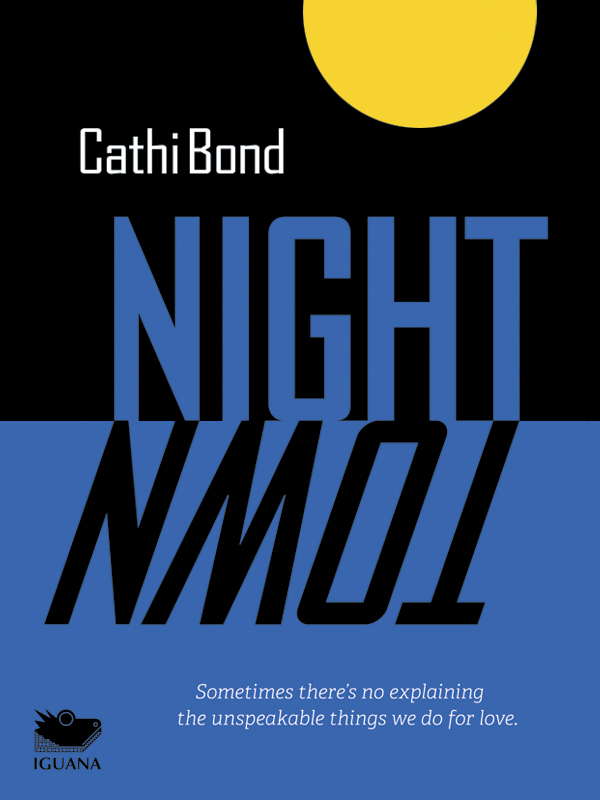Dear reader,
I received this email from a colleague and friend at the CBC and thought that he clearly understood what I was trying to achieve with Night Town. Especially in terms of the extreme differences between the political and sexual landscapes that existed in the early 1970s and the way they work today.
That is why I’ve included this letter in my blog. It speaks to a vast sexual schism, seemingly vaulted over in a single generation.
Cathi,
You know what would be great?
If we could meet for lunch so I could tell you how much I liked Night Town. Just in case we don’t meet, I’ll tell you a bit of what I think here.
First of all, I’m damned impressed. Lots of people get me to read their work and although I always do, a part of me always thinks, well, this could be a bit of a chore. Sometimes there’s massive stuff wrong with it (in my not-so-humble opinion). Frequently it’s okay but nothing special. Just kind of… bland. Run of the mill.
Night Town knocked my socks off.
This morning I came off the train and locked myself in my office until I finished it. I risked my job to read your book!
The calibre of writing is incredible. Professional. Taut. Gripping. Forgive me, but I did not think that it would be this good. I did not think that it COULD be this good.
I’m not saying it was perfect (don’t want you to get too swelled a head). But it was damned good. It reminded me a bit of a Martin Amis novel I read once (coincidentally, it’s called Night Train). I didn’t think it was perfect either, but it was a damned fine book. (In case you didn’t notice I’m comparing you favourably to Martin Amis here).
I did not always find your book an easy book to read. Maddy’s descent into hell was… dammit, I can’t think of the right word here. Horrific. Shattering. Appalling. Unnerving. (I’ll remember the right word for lunch…) I didn’t want to be in that world with her. But I wanted to know about that world. I felt like I needed to know about that world, and I am grateful to you for showing me that world. I kept wondering, how do you know about that world? Knowing you, you probably did lots of research. It all came off as terrifically authentic.
Maddie’s point of view was always consistent and disturbing. I wondered about her reliability as a narrator. Almost everybody in her story shut her out (even her mother, tragically), nobody offered her the support and love she desperately required, at least according to the story as she tells it. I suspected that she was a love filter, filtering out love and support, not absorbing it when it came her way, so although it might have been present in her life, she filtered it out so of course it wasn’t reflected in her story. Or maybe there was none at all and that’s why turned out the way she did. They say that lab rats raised alone without comfort and support invariably become sociopathic.
Your characterizations were deft and superb. Aunt Anne was real. Grandpa was real. Dad leapt off the page. The bit players, especially Gabe, lived authentic (if pathetic) lives. And Maddie of course rang truest of all.
I wondered how you would manage a happy ending without it feeling trite or stage managed. You pulled it off. I wanted there to be hope at the end and there was. I couldn’t have borne it had there not been hope for Maddie. I want to know what became of Lily. But you can never tell that story, it must be left unsaid, the same way the true nature of Gabe and Lily’s relationship is best left unsaid.
In my twenties I fell in love with a gay woman. At the time I didn’t understand why she couldn’t love me back. I was ignorant and naive. Around that time I moved in with two gay women, one of whom had been a good friend, and I didn’t know that she was gay or in a relationship with her roommate until two days before I moved in with them. They treated me horribly. At this time in my life I began to think that I might be the only heterosexual person left in Toronto. It made me need to understand the gay community so I read a lot about it and talked to a lot of people about it. These experiences are important because they influenced my reaction to this part of your book. It made me wish that I’d been able to read your book then. It would have helped me a lot. I’m certain it would help a lot of young people today, gay and otherwise.
In other words, I think you’ve not only written an excellent book, you’ve written an important book. A book with difficult subject matter that a lot of people might not be able to get past — the exact same people that most need to read it.
Congratulations Cathi.
Joe



